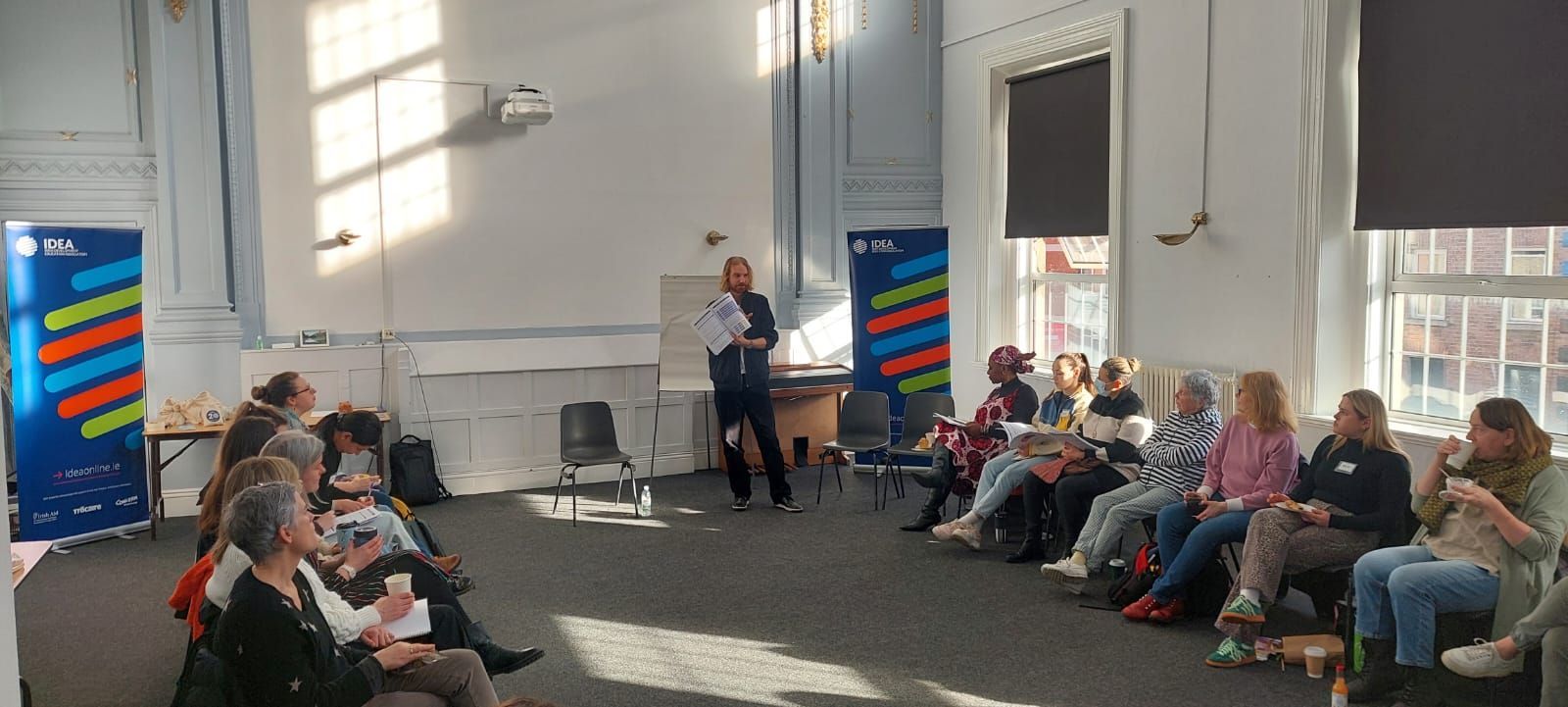Tips from the Educators’ Guide to Depolarisation

Whether it’s local immigration policy, global trade tariffs or transgender policies the world seems to be at odds. As educators we often work with groups where the participants have polar opposite views on many issues. A group of people may see the world so differently but what happens when we want that group to work together, build a connection or feel safe and inclusive for everyone?
Recently IDEA hosted training on the Educator’s Guide to Depolarisation, a toolkit and guide developed by the DARE Project (Depolarisation Activism for Resilient Europe).
The room was full of energy and enthusiasm. But given the reality facing our world today feelings of concern and fear for the future were also expressed. With good reason.
The Educators’ Guide to Deploratisation, a 2-day training, looked to enhance IDEA members’ skills in successfully engaging with polarising topics and views and establishing a dialogue where before there was only opposition.
At depolarisation training we approach conflict as an interpersonal and social inevitability rather than something that should be avoided to ‘keep the peace’. We then focus on our own power to transform disagreement and diversity of views into constructive engagement.
How to convince people to think like us?
One of first steps many of us struggle with when we begin to explore depolarisation, even with our own professional experience as GCE educators, is letting go of the desire to make everyone think like us and agree with us. Our desire to make the world a better place can often stand in our way. This desire can prevent us from connecting with other people and their views. But connection is critical for depolarisation.
Dialogue vs Debate?
Some tips from the Educators’ Guide to Depolarisation training includes the ‘Debate vs Dialogue’ challenge. When you are in conversation with a colleague or facilitating a conversation with a group you need to identify is this ‘a dialogue’ or ‘a debate’. Do you know the difference?
Do you want to win the argument?
or
Do you want to understand different perspectives?
Are you listening to find flaws?
or
Are you listening to understand?
Are you speaking based on your assumptions about other people’s motivations?
or
Are you speaking only from your own understanding?
Depolarisation; No winners, only learners.
To learn more about having or facilitating difficult discussions the Educators’ Guide to Depolarisation provides tools to guide educators through uncomfortable conversations.
A group will get closer by learning and asking questions of each other rather than simply stating their own beliefs. So, what’s the origin of our different beliefs?
Is a group disagreeing on immigration/ Trump/ transgender policies?
Try to have a difficult conversation by asking both sides 5 questions.
- Do you recall when you heard about or experienced this issue first?
- Why is this so important and difficult to just 'agree to disagree'?
- Mirror as best you can what you have heard from your conversation partner- why is this so important?
- If you woke up tomorrow in a world where the opposite of your belief is the status quo- how would you feel?
- Is there a way to prevent this issue?
Finally, ask people to reflect what they have learned from each other.
Being able to have a dialogue that doesn’t descend into a debate with winners and losers is one big step for any group. Along the journey to depolarisation there can be no winners, only learners.
If you missed the IDEA training with Hermes, explore the Educators’ Guide to Depolarisation training, toolkit and resources here









